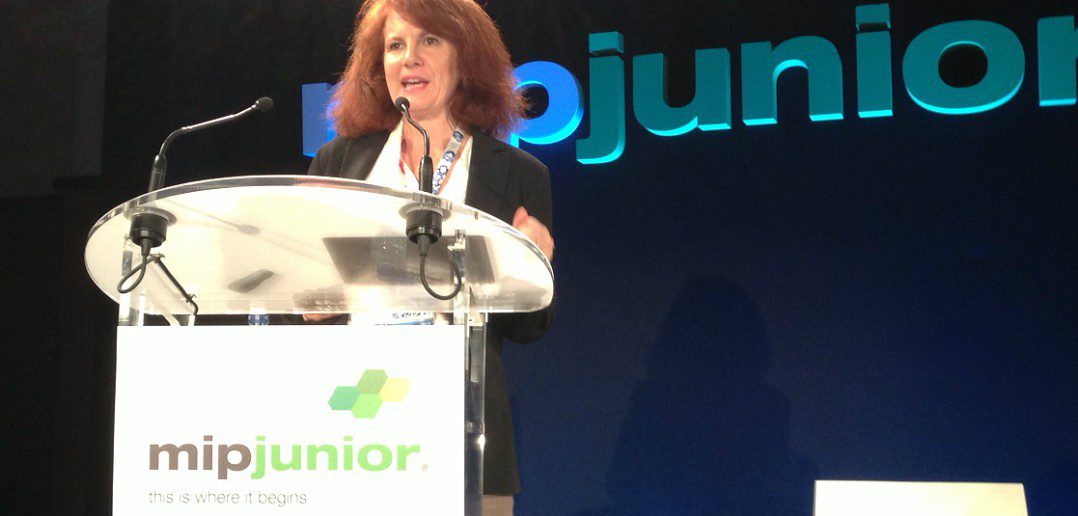Watch full MIPJunior sessions on mipcom.com now! (email req.)
The National Film Board of Canada has been throwing its weight behind some innovative digital projects for children in recent times.
Its director general of accessibility and digital entreprises, Deborah Drisdell, took to the MIPJunior stage this afternoon to talk about those projects, and how the NFB is looking to engage a youth audience across different platforms.
She started by stressing that the NFB is not as « dusty » as people may imagine from some of its past productions – and famously in a Simpsons episode that spoofed them. « We do what the private sector can’t do or won’t do, » she said. Digital risktaking included, in recent years.
The NFB launched a website, but also apps for smartphones, tablets and connected TVs, with mobile in particular helping its films reconnect with children and teenagers.
It’s also been commissioning interactive content for the website, with Drisdell giving a sneak peek at a project being launched in partnership with NASA called NFB Space School, giving an insight into the work of astronauts, including a shuttle launch.
« We’re really excited about this project, » said Drisdell. « It’s good to teach people when they don’t really feel like they’re learning something. » The interactive elements will support that, with infographics available to browse while people watch the videos. It launches in November (the show, not the shuttle).
And then there are apps. NFB has been trying different business models for apps. One is Ludovic, offering games and content for pre-schoolers, based on an existing show that had finished its broadcast run. The games link to videos from the show.
Another app is called PixStop, which teaches people to create their own stop-motion videos and share them online. Meanwhile, in the next month the NFB is releasing an app based on filmmaker Norman McLaren’s work, which will enable people to practise some of the techniques he used in the real world.
How did digital help the NFB reinvent itself? « The NFB’s remit was always about a real communication with its audience, » said Drisdell. « We would talk to the community and that would inspire our creation. » Referring to the days when the NFB would go out and show films to communities, and talk to them. That was lost a bit in the television age, but regained with digital.
« Yes, our content’s now available on their iPhones and iPads… yes, we’re where the kids are, but more importantly we’ve started the conversation back and having that direct communication with our audience, » said Drisdell.
What becomes possible in a position like NFB’s where it doesn’t have as much fear about not making money – as a publicly-funded body – and can thus try to be more innovative.
« Fear is good, but… you can talk yourself into paralysis, » she said. « We do have to generate some revenue, but this digital world is so uncertain and there’s no recipe for it, so I think we just have to try… It’s really energised the creative team. »
Drisdell added that it’s been exciting to make « direct-to-digital » new films, as well as creating digital campaigns and apps for older content, but said the pressure to generate revenues is more about making money to plough back into more innovative content, rather than any political pressure from the Canadian government.




